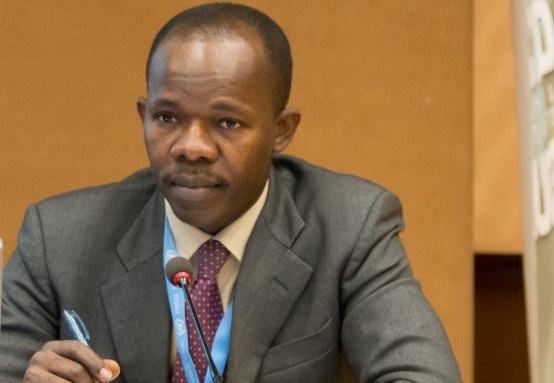National Cyber Security Advisor, Dr. Albert Antwi- Boasiako has said that, the technical and cross border nature of cybercrimes have made investigations and prosecution difficult.
Speaking at a workshop on cybercrime and electronic evidence for criminal justice officials as part of this year’s National Cyber Security Awareness Month (NCSAM), Dr Antwi-Boasiako, revealed that, the lack of successful investigation and prosecutions has led to an increase in cybercrimes because cybercriminals have not been deterred enough.
“Even where successful investigations and prosecutions have been carried out, the sentences for some of these offences are not deterrent enough to prevent reoffending.”
Speaking on the prosecution of cybercrimes, he said that, the reason why investigations by the criminal justice department have been a challenge is because developing a case against a cybercrime suspect does not assume the form of traditional crimes and this present its own challenges to criminal justice actors.
“Obtaining electronic evidence which is fit for purpose to meet the threshold of criminal prosecutions has been a challenge to our hardworking law enforcement officials.
“Authorities responsible for handling such cases usually face an uphill task when looking for evidence due to jurisdictional and cross-border related challenges.”

Dr Antwi-Boasiako further attributed the lack of successful investigations and consequent prosecutions to lack of relevant and up-to-date legislations to address issues of digital forensics and electronic evidence adding that, lack of technical knowledge and relevant experience by investigating, prosecuting and judicial authorities also pose a challenge to successful investigations and consequent prosecutions of cybercrimes and related offences in the country.
He then posited that, the lack of effective domestic and international cooperation arrangements to deal with existing and emerging cybercrime trends in the country is also another challenge in this regard.
Dr Antwi-Boasiako, said the establishment of the Convention on Cybercrime, has improved the country’s international cooperation efforts to mitigate cybercrimes.
He noted that, the government, through the National Cyber Security Centre (NCSC) of the Ministry of Communications has introduced a number of interventions to address the various challenges faced by criminal justice officials in dealing with cybercrimes and related offences.
He said the establishment of Digital Forensics Lab at the Criminal Investigation Department (CID) of the Ghana Police Service through support provided by UNICEF Ghana and the establishment of a Digital Forensics Lab at the Economic and Organised Crime Office through the support of the United States Government as well as training and capacity building for the criminal justice sector through Ghana’s collaboration with the Council of Europe under the GLACY+ project, were all aimed at enhancing the country’s capacity in handling cybercrimes and related offences.
“Through our collaboration with our partners, we have built capacity in the criminal justice sector, particularly the training of investigators, prosecutors and judges on cybercrime and electronic evidence and the facilitators of this course have been accredited by the Council of Europe as qualified Trainers who are now leading the capacity building efforts across the country.”
He expressed his optimism over training conducted as it will strengthen joint efforts in equipping the criminal justice sector with the tools that they need to contribute to securing Ghana’s digital journey through effective investigations, prosecutions and adjudication of cybercrime cases.





















